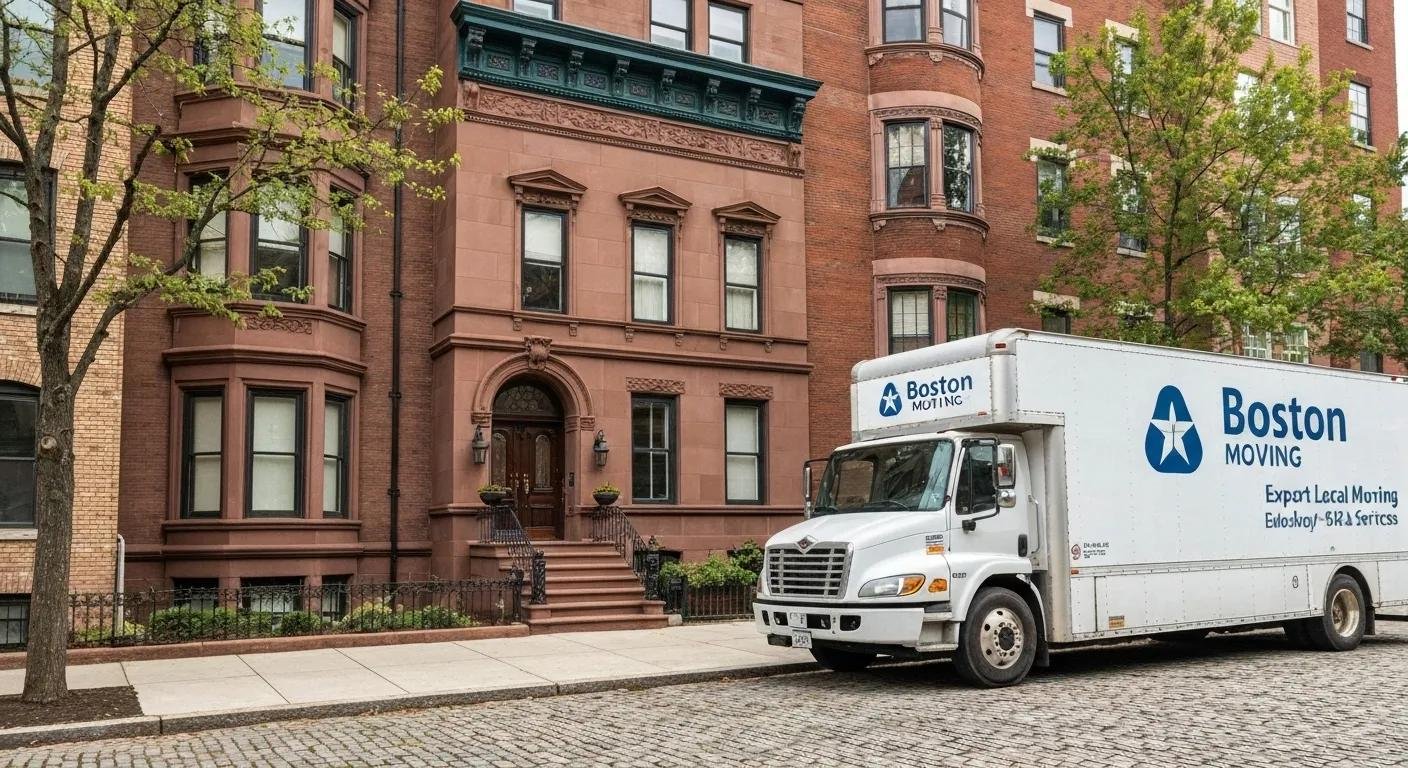Understanding Local Movers: A Comparative Guide to Pricing Structures in Your Area

Navigating Local Mover Pricing: A Boston Moving Company Cost Breakdown
Understanding how local movers in your area structure their pricing can turn a potentially overwhelming move into a well-managed transition. This guide breaks down the key elements of Boston moving company costs, explaining the differences between hourly and flat rates, how distance and volume affect your bill, and what to expect regarding extra service fees and potential hidden charges. You’ll also find insights into average costs for apartments, houses, businesses, and special items, along with tips for getting accurate estimates, exploring senior moving assistance, and avoiding unwelcome surprises. By demystifying these aspects and highlighting the transparent approach of Horizon Boston Movers, you’ll feel more confident comparing your options and securing dependable quotes for any move within Boston and its surrounding neighborhoods.
What Drives Moving Costs in Boston?
The price of moving in Boston is shaped by several factors: labor rates, the distance your belongings travel, the sheer volume of your possessions, the scope of services you require, and the dynamics of the local market. Labor costs can fluctuate with the seasons and the size of the moving crew, while mileage directly impacts fuel and time expenses. The amount of stuff you have determines the truck space needed and the effort involved in loading. If you opt for extra services like packing, unpacking, or storage, these will add to the overall cost. Keep in mind that high demand during peak seasons can also lead to surcharges. Knowing these cost drivers will help you create a more accurate budget and better evaluate specific pricing models.
Hourly vs. Flat Rate Pricing for Boston Movers: What’s the Difference?
Hourly rates mean you pay a set price for each mover for every hour they work, offering flexibility if your moving plans are a bit uncertain or if you anticipate needing to make adjustments on the go. Flat rate pricing, on the other hand, bundles the estimated labor, travel time, and all agreed-upon services into a single, fixed project cost. This provides cost certainty for moves where you have a clear picture of what’s involved, helping to prevent unexpected charges for overtime.
Your choice between these pricing structures will depend on how complex your move is and how important it is for you to have a fixed budget. This leads us to consider how distance and volume further influence the final cost.
How Do Distance and Volume Impact Boston Moving Expenses?
The distance your move covers and the volume of items you’re transporting directly affect your Boston moving costs by influencing travel charges and the number of movers needed. Longer distances mean higher fuel costs and more time spent by the moving crew. A larger volume of belongings requires a bigger truck or potentially multiple trips, along with more effort to load and unload. For instance, a two-hour drive will add both labor hours and mileage fees to any local moving quote, whether it’s hourly or flat rate. A truck packed to capacity might also incur extra charges if you’re moving during a weekend or a busy holiday period. Understanding these connections highlights why providing an accurate inventory is crucial for getting precise quotes.
What Additional Services Can Affect Your Total Boston Moving Bill?
Beyond the basic transport, several additional services can adjust your moving price:
- Hiring professionals for packing and unpacking ensures your items are well-protected but will add hourly fees or charges per box.
- If you need storage, this will typically involve daily or monthly rates, plus any handling fees for moving items in and out.
- Moving special items like pianos or safes requires specialized equipment, padded trucks, and extra labor.
- Having furniture disassembled and then reassembled at your new location is usually billed by the hour or on a per-piece basis.
These services can significantly enhance the convenience and safety of your move, but they naturally lead to the next important topic: identifying potential hidden fees that could impact your budget.
What Hidden Fees and Surcharges Should Boston Movers’ Customers Be Aware Of?
- Tolls and bridge fees that are added for each segment of the trip.
- Parking permits or elevator access fees that might be charged by your building management.
- Long carry fees if movers have to carry items a significant distance from the truck or up multiple flights of stairs.
- Fees for last-minute cancellations or rescheduling, which help compensate the company for holding crews for you.
Being aware of these potential extras in your estimate can prevent unexpected charges and prepare you to better understand the average costs for different types of moves.
What Are the Typical Moving Costs in Boston by Move Type?

The average cost of moving in Boston varies depending on whether you’re moving a small apartment or a large house, or if it’s a residential or commercial relocation. Recent industry figures indicate that local apartment moves typically range from $400 to $1,200. For a three-bedroom house, expect costs to be between $800 and $2,500, influenced by distance and the time of year. Commercial moves often involve larger teams and specialized packing, which can increase rates compared to residential moves of similar size. Moving specialty items like pianos or safes usually adds an extra $150–$400 per item. These general figures can help you set realistic expectations before you start requesting detailed quotes.
These numbers provide a good starting point for understanding the specifics of different move types.
How Much Does It Cost to Move a Boston Apartment, Based on Size?
The cost of moving an apartment generally increases with its square footage and the amount of belongings you have:
- Studio apartments usually require 2 movers for 2–3 hours, often priced at an hourly rate or a modest flat fee.
- One-bedroom apartments typically need about one additional mover and an extra hour of labor.
- Two-bedroom apartments often call for 3 movers and a commitment of about half a day.
When you provide accurate estimates of your belongings, you’ll get more precise hourly or flat rate quotes that reflect the size of your apartment and its contents.
What Are the Usual Prices for Moving a House in Boston by Size?
Moving a house generally requires larger crews and more time:
- Three-bedroom homes typically involve a half-day move with 3–4 movers, and mileage fees will be higher.
- Homes with four or more bedrooms might need full-day crews of 4–5 movers, specialized equipment, and potentially packing services.
For larger homes, flat rate estimates are often the most beneficial, as they cap your labor costs and prevent you from being charged extra for extended hours.
How Do Commercial Moving Rates in Boston Compare to Residential Moves?
Commercial moves often involve handling sensitive equipment, requiring custom packing solutions, and adhering to strict timelines. Crews with specialized training for business relocations might charge 10–20% more per hour than for residential moves. Scheduling moves outside of business hours can also increase hourly rates. However, opting for a flat rate agreement for weekend or overnight moves can help businesses control costs by minimizing operational downtime.
What Are the Costs Associated with Moving Specialty Items in Boston?
Moving items like pianos, safes, or valuable antiques requires specialized equipment, extra padding, and additional personnel. This typically adds $150–$400 per item to your moving cost. These tasks involve using padded trucks, custom rigging techniques, and ensuring proper liability coverage, all of which contribute to a higher project estimate compared to moving standard furniture.
How Can You Secure Accurate Moving Estimates from Boston Local Movers?
To get accurate estimates, you need to provide thorough information, understand transparent pricing structures, and ensure you receive written proposals. Be sure to give a detailed inventory of everything you need moved, clarify any access challenges at your locations (like narrow staircases or specific parking rules), and clearly state all the services you require upfront. Always confirm that quotes include labor, mileage, packing supplies, and any known surcharges. Open communication at this stage is key to avoiding surprises and building trust in the estimate you receive.
What Steps Should You Take to Request a Reliable Moving Quote in Boston?
- Create a detailed list of all your belongings, including any specialty items.
- Note any access details, such as whether you have stairs, an elevator, or specific parking limitations.
- Specify the services you need, like packing or unpacking, and your preferred moving dates.
- Ask for a written estimate that clearly itemizes every cost component.
Following these steps will help align expectations and make it easier to compare quotes from different companies.
How Do You Compare Quotes from Various Boston Moving Companies?
- Make sure each estimate covers the exact same services and accounts for the same volume of items.
- Compare the hourly labor rates, mileage fees, and what’s included in any flat fee.
- Look for companies that are upfront about potential surcharges.
- Check the experience of the moving crews and their insurance coverage details.
A consistent comparison will help you identify the best value and service guarantee for your move.
What Questions Should You Ask Boston Movers About Their Pricing?
- “Do you offer both hourly and flat rate pricing options?”
- “Are there any potential fees or surcharges that might apply based on my building or the route?”
- “What is your policy if I need to cancel or reschedule my move?”
- “Can you provide a detailed breakdown of all costs in writing?”
Asking these direct questions will bring clarity and help prevent unexpected charges.
What Special Pricing and Services Are Available for Senior Moves in Boston?

Relocating for seniors often requires a blend of moving expertise and compassionate support. Many local moving companies offer specialized packages that can include discounted hourly rates, dedicated packing teams, and assistance coordinating with downsizing services. Senior move programs frequently bundle services like packing, labeling, and unpacking into a single, clear price structure designed to ease both the physical and emotional aspects of the transition.
How Do Senior Moving Discounts and Packages Work in Boston?
Senior moving packages typically begin with a complimentary in-home consultation. This is followed by a bundled flat rate that covers packing, transportation, and unpacking. You might also find discounted labor rates or waived travel fees. Flexible scheduling options are often available to accommodate medical appointments or family support needs, ensuring a respectful and well-organized move.
What Unique Factors Influence Senior Relocations and Their Costs?
Moves for seniors often involve the careful handling of cherished heirlooms, close coordination with family members, and thoughtful space planning for the new residence. Services that save time, such as pre-move sorting, detailed labeling of boxes, and real-time updates on moving day, add significant value. However, it’s important to clearly define the scope of these services to maintain budget transparency.
How Can You Avoid Surprises with Boston Moving Company Pricing?
Preventing unexpected fees comes down to having clear, upfront agreements and precisely defined services. Always request itemized proposals that list all labor, mileage, packing materials, and any potential surcharges. Confirm any rate adjustments that might apply during peak months, for weekend moves, or due to building access limitations. This proactive approach ensures peace of mind and builds confidence in the moving company you choose.
What Are Common Pricing Pitfalls and How Can You Spot Them?
- Vague language like “hourly plus fees” without clear limits on potential surcharges.
- A lack of written confirmation for any components of a flat rate.
- Estimates that don’t include packing supplies or mention charges for specialty handling.
- Failure to address specific building access restrictions in the initial quote.
Identifying these gaps early on will help you insist on complete and accurate proposals.
How Does Transparent Pricing Benefit Boston Moving Customers?
Transparent pricing builds trust, reduces stress, and makes budgeting much simpler by eliminating hidden fees. Clear estimates allow for straightforward comparisons between companies, empower you to make informed decisions, and ensure that moving day proceeds smoothly—aligning your service expectations with the actual value you receive.
By thoroughly understanding rate structures, average costs, and the best practices for getting estimates, you’ll be well-equipped to choose trusted professionals like Horizon Boston Movers for a seamless relocation in Boston. Comparing hourly versus flat rates, factoring in distance and volume, and clarifying all cost components upfront will help you avoid surprises and secure dependable, transparent service. Contact us with your detailed inventory and building information to receive a comprehensive quote tailored to your specific needs, and schedule your next move with confidence.


